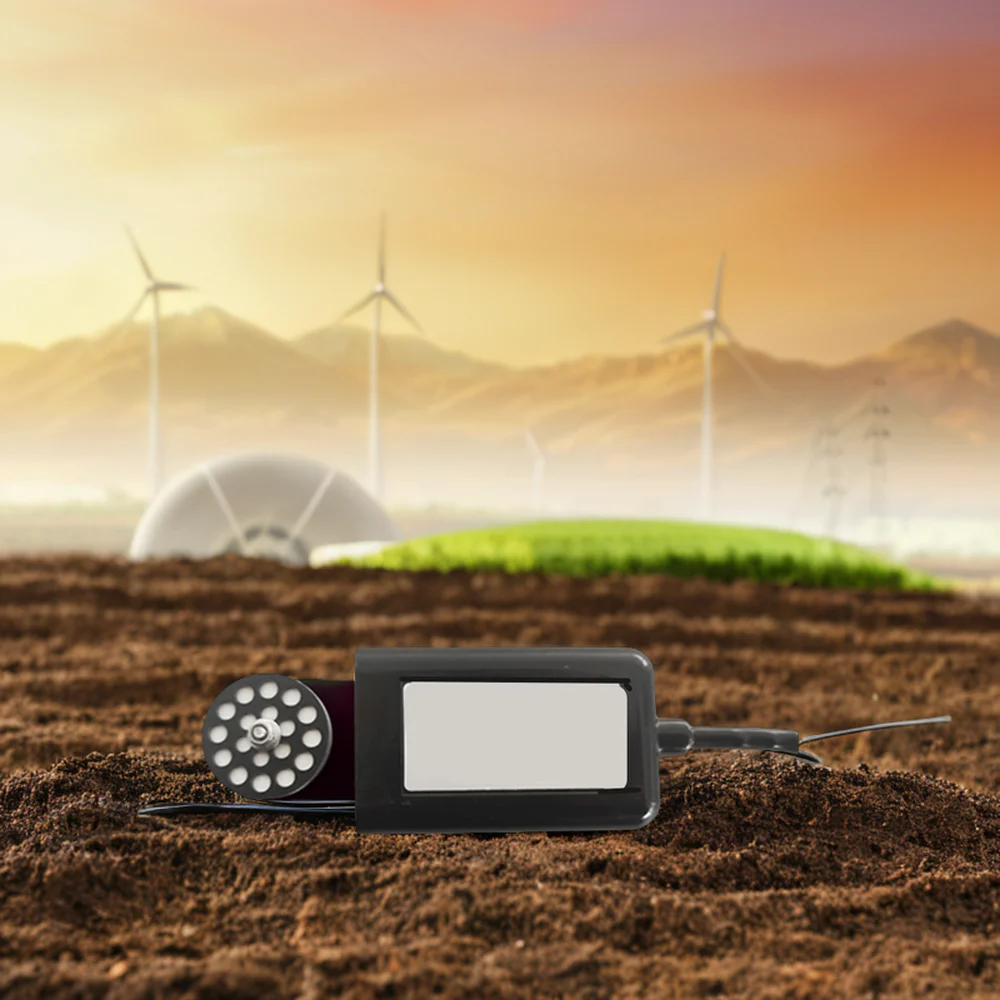Against the backdrop of increasingly tight global water resources, soil water potential sensors, as a key agricultural technology tool, are playing an increasingly important role in farmlands around the world. From vineyards in California, USA to collective farms in Israel, from coffee plantations in Brazil to wheat fields in Australia, this device that can precisely measure the water tension in the soil is helping farmers manage irrigation more scientifically and achieve efficient use of water resources.
The United States: Precision irrigation enhances wine quality
In the renowned wine region of Napa Valley, California, soil water potential sensors are transforming the traditional way of vineyard management. Winemakers use these devices to monitor the moisture conditions of different soil layers and precisely control the timing and volume of irrigation.
“By maintaining the best soil water potential, we can not only save 30% of irrigation water, but also improve the sugar-acid balance of the grapes,” said the agricultural manager of a local boutique winery. “This is directly reflected in the flavor complexity of the wine, making our products more competitive in the market.”
Israel: A technical model of desert agriculture
As a global leader in water resource management, Israel has widely applied soil water potential sensors in its advanced drip irrigation systems. In the agricultural areas of the Negev Desert, these sensors are connected to automatic control systems to achieve precise irrigation that is entirely based on the needs of plants.
“Our system can automatically start irrigation when the soil water potential reaches a specific threshold,” an agricultural technology expert introduced. “This’ on-demand water supply ‘model enables us to maintain high productivity even in extremely dry environments, with a water resource utilization rate as high as 95%.”
Brazil: Protecting rainforests while increasing production
In coffee and sugarcane plantations in the Cerrado region of Brazil, the application of soil water potential sensors is helping farmers balance the relationship between agricultural production and environmental protection. By precisely monitoring changes in soil moisture, growers can avoid over-irrigation, reduce nutrient loss and pollution of groundwater.
“We no longer rely on fixed irrigation plans but make decisions based on sensor data,” said a manager of a large coffee farm. “This not only reduces water usage by 20%, but also increases production by 15%, while minimizing the negative impact on the surrounding ecosystem.”
Australia: Smart Solutions for Dealing with Arid Climates
Facing frequent drought climates, Australian farmers are actively adopting soil water potential sensors to optimize water resource utilization. On wheat farms in New South Wales, these devices help farmers ensure that crops receive the right amount of water during critical growth stages, while avoiding the waste of precious water resources during non-critical periods.
“Under conditions of uncertain rainfall, every drop of water is precious,” said a farmer. “Soil water potential data enables us to provide the right amount of water at the right time, which is crucial for maintaining the farm’s profitability.”
India: Innovative Applications of Small-scale Peasant Economy
Even in India, where small-scale farming is the dominant economy, soil water potential sensors have found innovative application models. In Punjab, multiple small farms share a sensor system and receive irrigation suggestions via mobile phones, enjoying the benefits of precision agriculture technology at the lowest cost.
“We can’t afford a complete smart irrigation system, but shared sensor services are feasible,” said a local farmers’ cooperative head. “This has helped us reduce water pumping electricity by 25% while increasing crop yields.”
Technical core: From data to decision-making
Modern soil water potential sensors, based on the principles of tensiometers or solid-state sensors, can accurately measure the ease with which plant roots absorb water from the soil. These data, when combined with crop growth models, can provide farmers with precise irrigation decision support.
“The key lies not only in measuring soil water potential, but also in converting these data into feasible management suggestions,” said a research and development director of an agricultural technology company. “We are committed to developing smarter algorithms to integrate soil water potential data with weather forecasts, crop growth stages and other information, providing more comprehensive decision support.”
Future Outlook: Global Promotion and Technological Innovation
With the intensification of global climate change and the increasingly serious problem of water shortage, the application of soil water potential sensors is expected to continue to expand. Researchers are developing sensors that are less costly and more durable to meet the needs of small-scale farmers in developing countries.
“Future soil water potential sensors will be more intelligent and networked,” an industry analyst predicted. “They will operate independently for several years without maintenance and be interconnected through low-power networks to form an intelligent water management network covering the entire farm.”
From high-tech farms in developed countries to traditional farmlands in developing countries, soil water potential sensors are transforming the way agricultural water resources are managed on a global scale. With the continuous advancement of technology and the sustained decline in costs, this precise irrigation tool is expected to play a more significant role in global food security and sustainable water resource management, providing practical and feasible solutions to the global water crisis.
For more sensor information, please contact Honde Technology Co., LTD.
WhatsApp: +86-15210548582
Email: info@hondetech.com
Company website: www.hondetechco.com
Post time: Oct-24-2025


